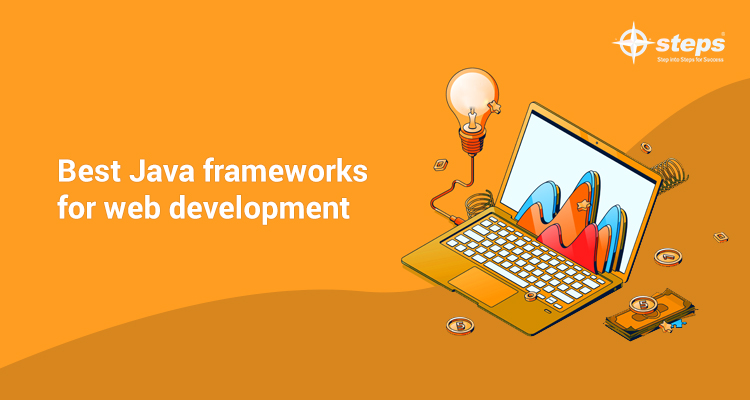Best Java framework for web development

Java is the most widely used programming language. It is a strong language that, when paired with a framework, can deliver the finest solutions for every domain, including e-commerce, banking, cloud computing, finance, big data, the stock market, information technology, and more.
If you’re new to Java, check out this blog, which will walk you through all the key ideas you’ll need to get started with the best frameworks for web development.
Java is used by millions of websites, including some major companies like Google, Amazon, LinkedIn, eBay, and Stack Overflow. There are several Java frameworks available on the market, but none of them provide a superior solution; as a result, industries prefer to select the most appropriate and finest framework.
Most companies become confused while deciding on the best framework for application development, and as a result, they are unable to make a clear and effective selection.
What Are Java Frameworks, and How Do They Work?
A Framework is a collection of pre-written code that functions as a template or skeleton that a developer can use and reuse to create an application by adding in their code as needed to get the app to perform as desired. Developers may develop their apps without having to write every line of code from the start by reusing frameworks.

Spring
- Spring is used by around 803 active websites, with a total of 8,821 sites utilizing it in the past. Spring is used by Google, Netflix, Microsoft, and Amazon etc…
- Spring is a popular lightweight JAVA framework that is mostly used to build enterprise applications.
- This is an open-source framework with several features, such as security and configuration.
- Since the framework was first published in 2002, it has a growing community.
Hibernate
- Regardless of the fact that Hibernate is not a full-stack framework, it completely transformed our approach to databases.
- Hibernate is an Object-Relational-Mapping (ORM) database for Java applications that implements the Java Persistence API (JPA).
- Hibernate queries are referred to as HQL, much as SQL queries (Hibernate Query Language).
- This framework that maps Java classes to database tables and vice versa.
Structs
- Another solid open-source framework for web applications is Apache Struts.
- It extends the JSP API and follows the MVC (Model-View-Controller) model.
- If a user submits a form with his information, the information is sent to a servlet for processing, or the control is sent to the next JSP (Java Server Pages – where you may write Java code in HTML) in a typical servlet-JSP method.
Grails
- Grails is an easy-to-learn full-stack framework that is ideal for programmers who are just getting started.
- While Grails is a web framework built in Groovy, it operates on the Java platform and is fully compatible with Java syntax.
- The MVC design pattern is used to build this framework.
Hadoop
- It is not a full-stack framework by Apache.
- These tools can readily manage large amounts of data (Big Data), store, analyze, and process it, resulting in faster and more efficient outcomes.
GWT
- Google Web Toolkit (GWT) is a Java framework built by Google for developing rich internet applications.
- One of the most useful characteristics of GWT is that it transforms Java code into JavaScript code, which is specialized code written for the browser.
- This feature appeals to me since we used to spend a lot of time and effort on browser testing during development. Many additional Java frameworks, such as log4j for logging, JUnit, and Selenium for testing, are not full-stack or web development frameworks but are useful in any application. These are important to know, but you can learn them on the fly along with the other frameworks listed above.
The best framework for your app should satisfy your business needs, have a certain level of flexibility and performance, and be simple to maintain and adapt to changes. If you want to learn about the possibilities and updates more, a java internship in Kochi can help you improve your learning curve. We hope this post has been helpful to get a better understanding of Java. Java online course in Kochi can help you to become a good Java web developer and know the basics skills in Java programming that grab a successful career in Java.

